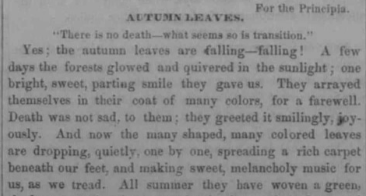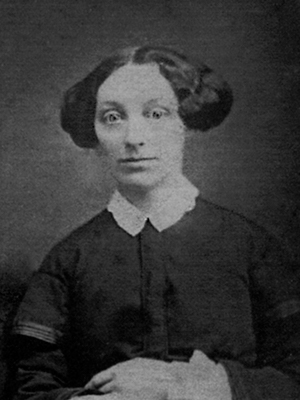“There is no death – what seems so is transition.”
Lavinia Goodell, quoting Henry Wadsworth Longfellow, November 1861
At this time of year, those of us who live in the northern states become keenly aware that summer is over. Leisurely drives to observe the fall colors are a favored pastime for many.

Lavinia Goodell, too, was a fan of autumn. The Goodell family’s correspondence in the 1860s and 1870s often contained some comment about the weather, and Lavinia’s letters made clear that she enjoyed the season. While she was still living in New York, Lavinia wrote to her parents, “It was a glorious day. It is quite cool and delicious autumn weather now, and I never felt better. “ After travelling by train from Pecatonica, Illinois to Janesville, Wisconsin after visiting her sister in 1873, she reported, “I think I never saw such fine autumn scenery.”
A decade earlier, twenty-two year old Lavinia had written a short piece titled “Autumn Leaves” for the Principia, her father’s anti-slavery newspaper. She began by quoting Longfellow, “There is no death – what seems so is transition.”

















